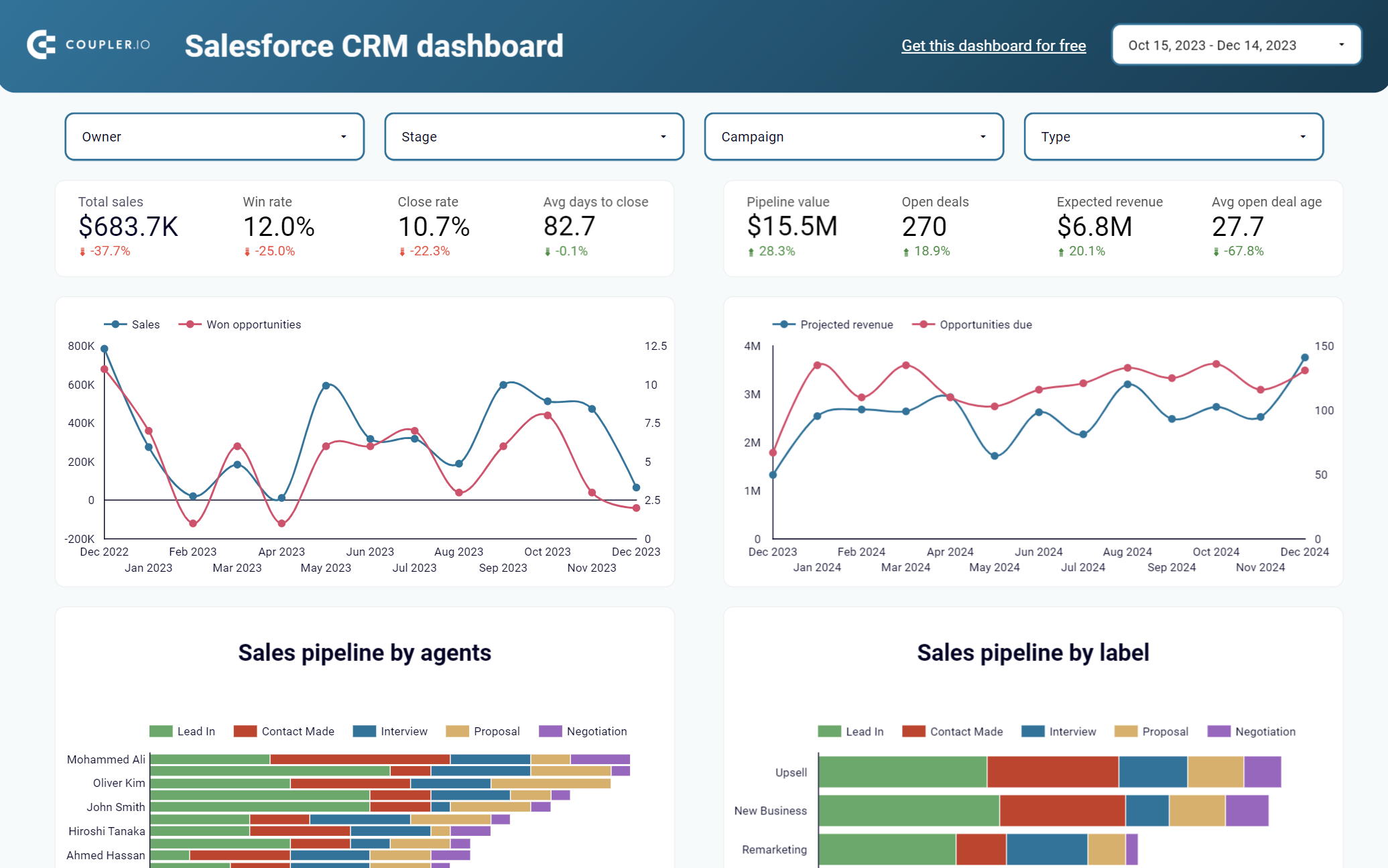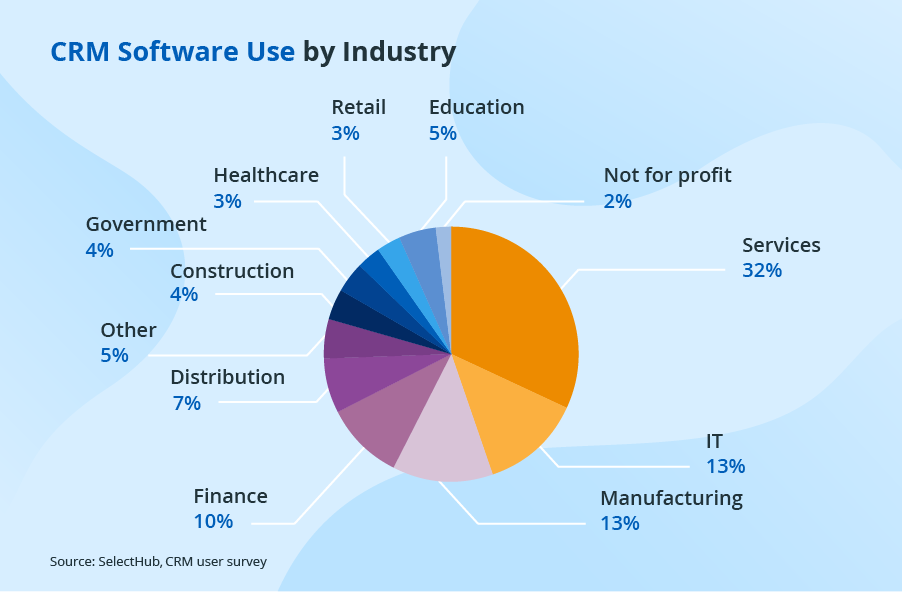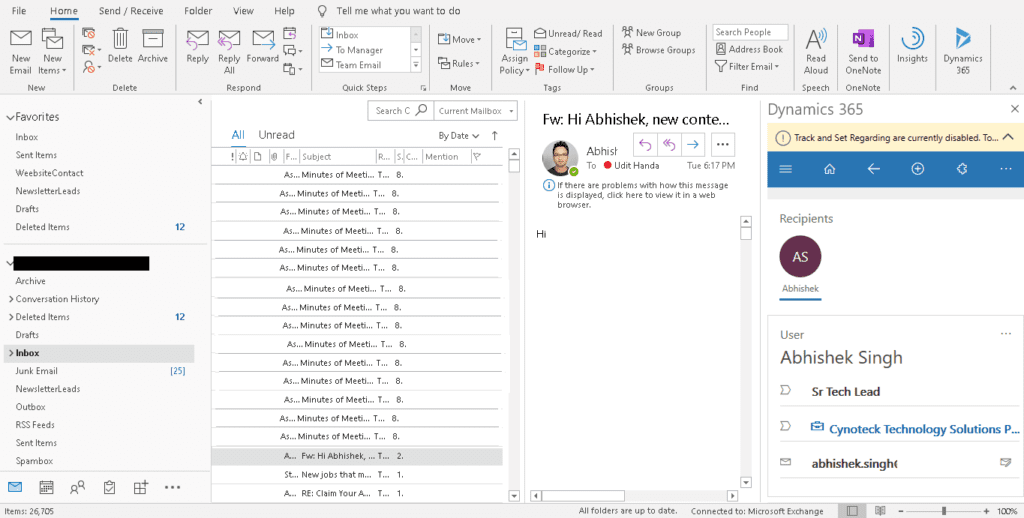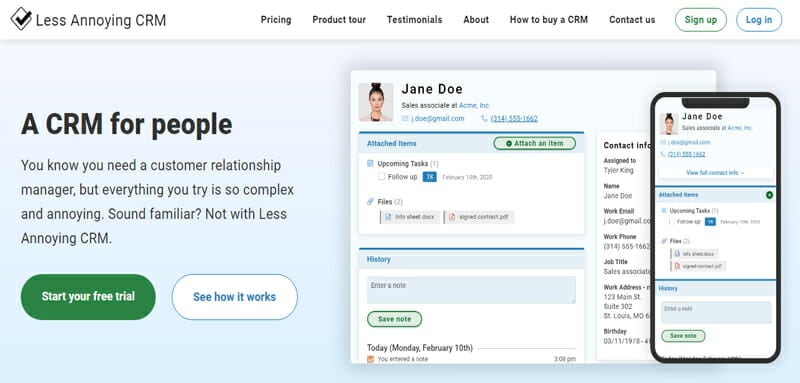
Introduction: Why Your Startup Needs a CRM
Starting a business is a rollercoaster. One minute you’re buzzing with excitement, the next you’re staring into the abyss of spreadsheets and overwhelming to-do lists. In the early days, juggling leads, managing customer interactions, and keeping track of sales pipelines can feel like herding cats. That’s where a Customer Relationship Management (CRM) system comes in. Think of it as your central nervous system for all things customer-related.
A CRM isn’t just a fancy address book. It’s a powerful tool that helps you:
- Organize and Centralize Data: No more scattered emails, lost phone calls, or forgotten details. Everything about your customers, from contact information to purchase history, is stored in one accessible place.
- Improve Customer Relationships: A CRM gives you a 360-degree view of each customer, allowing you to personalize your interactions and build stronger relationships.
- Boost Sales and Revenue: By streamlining your sales process, tracking leads effectively, and identifying opportunities for upselling and cross-selling, a CRM can significantly increase your bottom line.
- Enhance Team Collaboration: Everyone on your team has access to the same customer information, ensuring consistent communication and a unified approach.
- Gain Valuable Insights: CRM systems provide valuable data and analytics, helping you understand your customers better, identify trends, and make data-driven decisions.
For startups, the benefits of a CRM are amplified. It can be the difference between scaling successfully and getting bogged down in administrative chaos. But with so many options available, choosing the right CRM can feel daunting. This guide will break down the best CRM systems for startups, helping you make an informed decision that sets your business up for success.
What to Look for in a CRM for Startups
Not all CRM systems are created equal, and what works for a large enterprise may not be ideal for a lean startup. Here are the key features to prioritize when choosing a CRM for your growing business:
1. Ease of Use and Implementation
Time is precious for startups. You don’t want to spend weeks or months wrestling with a complex CRM system. Look for a platform that’s intuitive, easy to learn, and quick to implement. A user-friendly interface, clear instructions, and readily available support resources are crucial.
2. Scalability
Your CRM should grow with your business. Choose a system that can accommodate your expanding customer base, increasing data volume, and evolving needs. Consider features like custom fields, integrations with other tools, and the ability to handle a growing number of users.
3. Affordability
Startups often operate on tight budgets. Look for CRM systems that offer flexible pricing plans, including free or freemium options, or affordable tiers that align with your current resources. Factor in the total cost of ownership, including implementation, training, and ongoing support.
4. Key Features for Startups
While every business has unique needs, certain features are particularly valuable for startups:
- Contact Management: The ability to store and organize contact information, including names, phone numbers, email addresses, and social media profiles.
- Lead Management: Tools for tracking leads, qualifying them, and nurturing them through the sales pipeline.
- Sales Automation: Features that automate repetitive tasks, such as email follow-ups, appointment scheduling, and task assignments.
- Reporting and Analytics: Dashboards and reports that provide insights into sales performance, customer behavior, and other key metrics.
- Integration with Other Tools: Seamless integration with the tools you already use, such as email marketing platforms, social media channels, and accounting software.
5. Mobile Accessibility
In today’s fast-paced world, your CRM should be accessible on the go. Choose a system with a mobile app or a responsive web design that allows you to access and manage your customer data from anywhere, anytime.
Top CRM Systems for Startups: A Detailed Comparison
Now, let’s dive into the top CRM systems specifically designed to help startups thrive. We’ll explore their key features, pricing, pros, and cons, so you can find the perfect fit for your business.
1. HubSpot CRM
Overview: HubSpot is a popular and well-regarded CRM system, particularly known for its user-friendliness and generous free plan. It’s a comprehensive platform that offers a wide range of features, making it a great choice for startups of all sizes.
Key Features:
- Free CRM: HubSpot offers a robust free CRM that includes contact management, deal tracking, task management, and email marketing tools.
- Sales Automation: Automate repetitive tasks like email follow-ups, task creation, and deal updates.
- Reporting and Analytics: Gain insights into your sales performance with customizable dashboards and reports.
- Marketing Automation: Integrate with HubSpot’s marketing tools to create automated email campaigns and nurture leads.
- Integration: Seamless integration with a wide range of popular tools, including Gmail, Outlook, and Salesforce.
Pricing: HubSpot offers a free CRM plan with basic features. Paid plans start from around $45 per month and offer advanced features like sales automation, custom reporting, and more storage.
Pros:
- User-friendly interface
- Generous free plan
- Comprehensive features
- Excellent customer support
- Strong integration capabilities
Cons:
- Advanced features can be expensive
- Steeper learning curve for advanced features
2. Zoho CRM
Overview: Zoho CRM is a powerful and versatile CRM system that offers a wide range of features at a competitive price point. It’s a great option for startups looking for a feature-rich platform without breaking the bank.
Key Features:
- Contact Management: Store and manage contact information, track interactions, and segment your audience.
- Lead Management: Capture leads from various sources, qualify them, and nurture them through the sales pipeline.
- Sales Automation: Automate tasks, streamline workflows, and improve sales efficiency.
- Reporting and Analytics: Generate customizable reports and dashboards to track your sales performance.
- Integration: Integrate with a wide range of third-party apps, including Google Workspace, Microsoft 365, and social media platforms.
Pricing: Zoho CRM offers a free plan for up to three users with basic features. Paid plans start from around $14 per user per month.
Pros:
- Feature-rich platform
- Competitive pricing
- Customization options
- Strong integration capabilities
- Excellent customer support
Cons:
- Interface can be overwhelming for beginners
- Some advanced features require higher-tier plans
3. Pipedrive
Overview: Pipedrive is a sales-focused CRM system designed to help sales teams manage their deals and close more sales. It’s known for its intuitive interface and visual sales pipeline.
Key Features:
- Visual Sales Pipeline: Visualize your sales process and track deals through each stage.
- Deal Tracking: Manage deals, set reminders, and track progress.
- Contact Management: Store and organize contact information.
- Sales Automation: Automate tasks like email follow-ups and activity logging.
- Reporting and Analytics: Track key sales metrics and identify areas for improvement.
Pricing: Pipedrive offers a free trial. Paid plans start from around $14.90 per user per month.
Pros:
- Intuitive interface
- Visual sales pipeline
- Sales-focused features
- Easy to use
Cons:
- Limited features compared to other CRMs
- Focus primarily on sales, not marketing
4. Freshsales
Overview: Freshsales is a sales CRM system that’s part of the Freshworks suite of products. It’s known for its ease of use, affordability, and focus on sales productivity.
Key Features:
- Contact Management: Store and organize contact information, track interactions, and segment your audience.
- Lead Management: Capture leads from various sources, qualify them, and nurture them through the sales pipeline.
- Sales Automation: Automate tasks, streamline workflows, and improve sales efficiency.
- Reporting and Analytics: Generate customizable reports and dashboards to track your sales performance.
- Built-in Phone and Email: Make calls and send emails directly from the CRM.
Pricing: Freshsales offers a free plan with basic features. Paid plans start from around $15 per user per month.
Pros:
- Easy to use
- Affordable pricing
- Built-in phone and email
- Focus on sales productivity
Cons:
- Limited features compared to other CRMs
- Integration with other tools is not as extensive as some other options
5. Agile CRM
Overview: Agile CRM is a comprehensive CRM system that offers sales, marketing, and service automation features. It’s a good option for startups looking for an all-in-one platform.
Key Features:
- Contact Management: Store and organize contact information, track interactions, and segment your audience.
- Lead Management: Capture leads from various sources, qualify them, and nurture them through the sales pipeline.
- Sales Automation: Automate tasks, streamline workflows, and improve sales efficiency.
- Marketing Automation: Create automated email campaigns, nurture leads, and track marketing performance.
- Helpdesk: Provide customer support and manage support tickets.
Pricing: Agile CRM offers a free plan for up to 10 users with basic features. Paid plans start from around $9.99 per user per month.
Pros:
- All-in-one platform
- Marketing automation features
- Affordable pricing
- Good customer support
Cons:
- Interface can be clunky
- Not as many integrations as other CRMs
How to Choose the Right CRM for Your Startup
Choosing the right CRM is a crucial decision, and it’s important to take the time to evaluate your needs and compare your options carefully. Here’s a step-by-step guide to help you make the right choice:
1. Assess Your Needs
Before you start looking at CRM systems, take some time to define your specific needs and goals. Consider the following questions:
- What are your primary business goals? Are you focused on increasing sales, improving customer relationships, or streamlining your marketing efforts?
- What are your key pain points? What challenges are you currently facing in managing your leads, sales pipeline, or customer interactions?
- What features are essential? Do you need features like sales automation, email marketing integration, or reporting and analytics?
- What’s your budget? Determine how much you’re willing to spend on a CRM system, including implementation, training, and ongoing costs.
- How many users will need access to the CRM? This will impact the pricing and the plan you choose.
2. Research and Compare CRM Systems
Once you have a clear understanding of your needs, start researching different CRM systems. Consider the following factors:
- Features: Does the CRM offer the features you need to achieve your goals?
- Ease of Use: Is the system intuitive and easy to learn?
- Scalability: Can the CRM grow with your business?
- Pricing: Does the pricing align with your budget?
- Integrations: Does the CRM integrate with the tools you already use?
- Customer Support: Does the vendor offer adequate customer support?
- Reviews and Ratings: Read reviews from other users to get an idea of their experiences.
3. Take Advantage of Free Trials and Demos
Most CRM systems offer free trials or demos. Take advantage of these opportunities to test the platform and see if it’s a good fit for your business. This will allow you to get a hands-on feel for the interface, explore the features, and evaluate the user experience.
4. Consider Implementation and Training
Once you’ve chosen a CRM system, factor in the time and resources required for implementation and training. Some CRM systems are easier to set up than others. Consider whether you’ll need to hire a consultant or rely on the vendor’s support resources. Make sure your team is adequately trained to use the system effectively.
5. Start Small and Iterate
Don’t try to implement every feature of your CRM system at once. Start small and gradually introduce new features as your team becomes more comfortable with the platform. This will help you avoid overwhelm and ensure a smooth transition. Continuously evaluate your CRM usage and make adjustments as needed to optimize its performance.
Beyond the Basics: Tips for CRM Success
Choosing the right CRM is just the first step. To maximize your investment and achieve the desired results, consider these additional tips:
- Data Hygiene: Keep your data clean and accurate. Regularly review and update your contact information to avoid errors and ensure effective communication.
- Training and Adoption: Invest in adequate training for your team to ensure they understand how to use the CRM effectively. Encourage adoption by highlighting the benefits and providing ongoing support.
- Process Optimization: Use your CRM to streamline your sales and marketing processes. Automate repetitive tasks and create workflows to improve efficiency.
- Reporting and Analysis: Regularly review your CRM data to identify trends, track performance, and make data-driven decisions.
- Integration Strategy: Fully leverage the integration capabilities of your CRM by connecting it with other essential tools, such as email marketing platforms, accounting software, and social media channels.
- Customer Feedback: Regularly solicit feedback from your customers to understand their needs and improve your customer service.
Conclusion: Making the Right Choice for Your Startup
Selecting the best CRM for your startup is a pivotal decision that can significantly impact your growth trajectory. By understanding your needs, researching your options, and carefully evaluating the features and benefits of each platform, you can choose a CRM that empowers your team, streamlines your processes, and drives your business forward.
Whether you choose HubSpot, Zoho CRM, Pipedrive, Freshsales, Agile CRM, or another solution, remember that the key is to find a system that aligns with your specific needs and goals. With the right CRM in place, you’ll be well-equipped to manage your customer relationships, boost your sales, and achieve lasting success.
Don’t be afraid to experiment and adapt. The CRM landscape is constantly evolving, and what works today may not work tomorrow. Stay informed, embrace new technologies, and continuously optimize your CRM usage to stay ahead of the curve. Your startup’s future is in your hands, and with the right CRM, you can unlock its full potential.





